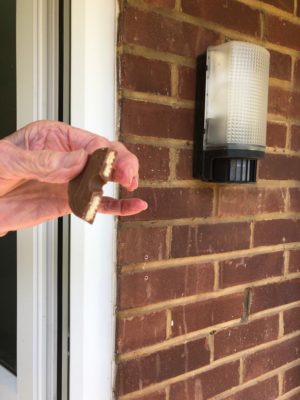“Stay Home. Stay Safe. Stay Alert.” We have all been trying to follow this advice for nearly two months now, but the reality of lockdown is different for us all. It’s not true to say we’re all in the same boat. We’re on the same turbulent waters, but our boats have different capabilities for navigating this uncharted territory.
Vulnerable are the hardest hit
Those in the high risk and vulnerable categories are facing additional challenges either brought about by lock-down or exacerbated by it. For example, those with preexisting medical conditions in isolation, unable to leave their homes, without close family nearby to help. Those living within an abusive home environment. Those already suffering with mental health issues. For these people, lock-down without support will not only be more difficult, but could have grave consequences.
Technology industry stepping up to facilitate support services
It has been encouraging to see the technology industry working so closely with public sector organisations to fast track production of digital innovations to support vulnerable citizens during the Covid-19 outbreak.

A vulnerable resident I do shopping for tries to show me which biscuit she wants me to pick up. It’s the small things, but I found them!
GoodSAM
For instance, the GoodSAM app enabled the NHS to recruit volunteers at scale, securing 750,000 in the first week. The app has put vulnerable people in direct contact with those who can help and enabled community aid groups to support residents however they need it.
I am a volunteer with GoodSAM and a coordinator with the Henley Covid-19 Mutual Aid Group, with each volunteer supporting over 80 households to deliver food and prescriptions to those who are self-isolating. Such groups are running all over the country and it is fantastic to see people helping others in their community. GoodSAM has meant those needing help can access it much more easily and those willing to help can make a real difference. Combined with GoodSAM, local mapping company ESRI has helped the Henley community group by providing interactive maps for free to identify the nearest volunteer and track the necessary actions in real-time.
TechForce19 challenge
As part of their TechForce19 challenge, NHSX, the Department of Health and Social Care (DHSC) and the Ministry for Housing Communities and Local Government (MHCLG) have awarded up to £25,000 to 18 innovative digital solutions tasked with developing new ways to support vulnerable people during the Covid-19 crisis.
An example is Neurolove, a website that has been created to support mental health in young people, providing group sessions for those feeling lonely and therapy sessions for anyone feeling low or anxious. And Freebris has created a platform to help carers and health assistants identify health risks and deterioration within elderly communities, ensuring they still receive quality care whilst staying safe and isolating.
Identifying vulnerable citizens is key
Whilst it is extremely positive the amount of technologies stepping up to support vulnerable citizens, most require people to self-identify as vulnerable directly with the specific app or solution to access that support. Local authorities however have a responsibility to understand who is vulnerable and at-risk in their communities without the need for self-identification, to ensure no one slips through the net.
We have heard from several of our public sector clients that they are already using our matching and single citizen view technology to identify vulnerable and at-risk households who may need extra help or interventions right now. This has been great to hear, and we’re doing all we can to help the rest of our clients do the same.
However, this approach needs to be adopted on a wider scale, and approved technologies need to be able to work with local authorities to assist those who may not have virtually ‘waved their hand in the air’.
It has been wonderful to see the steps taken so far to keep people in touch with their community and accessing the services they need. However, now I would like to see a move to preemptively identifying vulnerable people, to prevent our most at-risk citizens in society being overlooked and in danger of being left out in the cold. This will remain a key issue going forwards and cannot be done by any single agency or department working in isolation.
Written as part of the TechUK Connect and Protect campaign.
